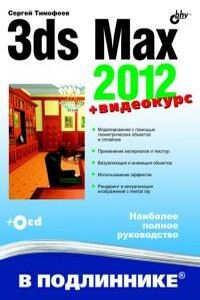Rust by Example | страница 21
>println!("1000 as a u8 is : {}", 1000 as u8);
>// -1 + 256 = 255
>println!(" -1 as a u8 is : {}", (-1i8) as u8);
>// For positive numbers, this is the same as the modulus
>println!("1000 mod 256 is : {}", 1000 % 256);
>// When casting to a signed type, the (bitwise) result is the same as
>// first casting to the corresponding unsigned type. If the most significant
>// bit of that value is 1, then the value is negative.
>// Unless it already fits, of course.
>println!(" 128 as a i16 is: {}", 128 as i16);
>// 128 as u8 -> 128, whose two's complement in eight bits is:
>println!(" 128 as a i8 is : {}", 128 as i8);
>// repeating the example above
>// 1000 as u8 -> 232
>println!("1000 as a u8 is : {}", 1000 as u8);
>// and the two's complement of 232 is -24
>println!(" 232 as a i8 is : {}", 232 as i8);
>// Since Rust 1.45, the `as` keyword performs a *saturating cast* when casting from float to int.
>// If the floating point value exceeds the upper bound or is less than the lower bound, the returned value will be equal to the bound crossed.
>// 300.0 is 255
>println!("300.0 is {}", 300.0_f32 as u8);
>// -100.0 as u8 is 0
>println!("-100.0 as u8 is {}", -100.0_f32 as u8);
>// nan as u8 is 0
>println!("nan as u8 is {}", f32::NAN as u8);
>// This behavior incures a small runtime cost and can be avoided with unsafe methods, however the results might overflow and return **unsound values**. Use these methods wisely:
>unsafe {
>// 300.0 is 44
>println!("300.0 is {}", 300.0_f32.to_int_unchecked::
>// -100.0 as u8 is 156
>println!("-100.0 as u8 is {}", (-100.0_f32).to_int_unchecked::
>// nan as u8 is 0
>println!("nan as u8 is {}", f32::NAN.to_int_unchecked::
>}
>}
>הההההההההההההההההההההההההההההההההההההההההההההההההההההההההההההההההההההההההההההההההההההההההההההההההההההההההההההההההההההההההההההההההההההההההההההההההההההההההההההההההההההההההההההההההההההההההההההההההההההההההההההההההההההההההההההההההההההההההההההההההההההההההההההההה
>XXXXXXXXXXXXXXXXXXXXXXXXXXXXXXXXXXXXXXXXXXXXXXXXXXXXXXXXXXXXXXXXXXXXXXXXXXXXXXXXXXXXXXXXXXXXXXXXXXXXXXXXXXXXXXXXXXXXXXXXXXXXXXXXXXXXXXXXXXXXXXXXXXXXXXXXXXXXXXXXXXXXXXXXXXXXXXXXXXXXXXXXXXXXXXXXXXXXXXXXXXXXXXXXXXXXXXXXXXXXXXXXXXXXXXXXXXXXXXXXXXXXXXXXXXXXXXXX
Numeric literals can be type annotated by adding the type as a suffix. As an example, to specify that the literal 42 should have the type i32, write 42i32.
The type of unsuffixed numeric literals will depend on how they are used. If no constraint exists, the compiler will use i32 for integers, and f64 for floating-point numbers.


